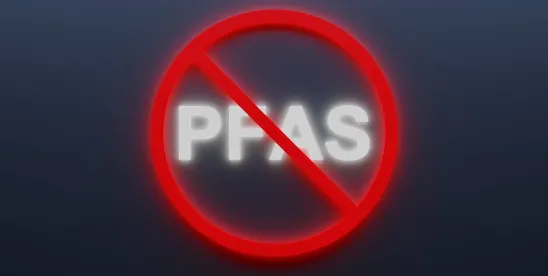On August 13, 2025, Public Employees for Environmental Responsibility (PEER) announced that it petitioned the Make America Healthy Again (MAHA) Commission to remove per- and polyfluoroalkyl substances (PFAS) from the food chain. PEER notes that its petition highlights three human exposure pathways it asks the MAHA Commission to address:
- Biosolid fertilizers made from sewage sludge contain high levels of PFAS. According to PEER, nearly 20 percent of U.S. agricultural land is estimated to use sludge-based fertilizers and as many as 70 million acres of farmland may be contaminated. PEER notes that PFAS from the sewage sludge are taken up by plants and accumulate in fruits, vegetables, meat, eggs, and dairy;
- PEER states that “[t]he fluorination process used by a large manufacturer of plastic containers creates PFAS in their linings which leach into their contents, including into edible oils and flavorings.” According to PEER, an estimated 200 million containers a year are made this way; and
- Pesticides containing PFAS are used throughout the country on staple foods such as corn, wheat, kale, spinach, apples, and strawberries. PEER states that they “are also widely used in people’s homes in flea and tick treatments for pets and insect-killing sprays.”
PEER calls for the MAHA Commission and its individual agency members to take “immediate concerted action to close these PFAS pathways into America’s food chain.” According to PEER, the first step is to adopt “a uniform government-wide definition of PFAS as a compound with at least ‘one fully fluorinated carbon,’ which has been adopted by European authorities, the Organization for Economic Cooperation and Development, the U.S. Geological Survey, and many states, including Colorado, Washington, Maine, Maryland, New York, and California.” The second step is for MAHA agencies to commit to use their regulatory, procurement, and grant-making authorities to eliminate official support for these products containing PFAS.




 />i
/>i
